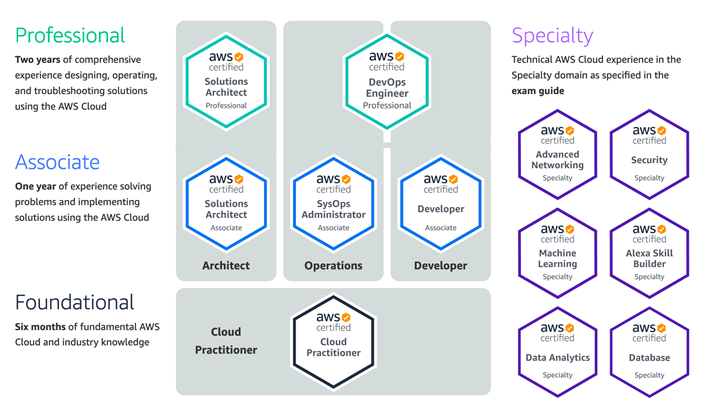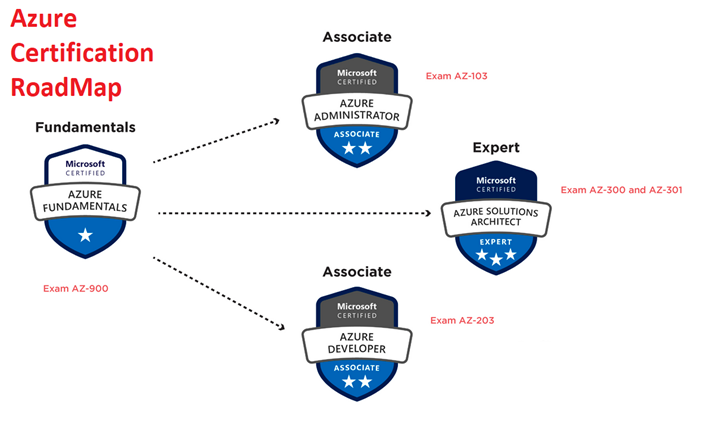Both of these cloud products have a great market share used by many companies, organisations and individuals.
AWS - Amazon Web Services is owned by amazon.com and launched in 2006, used by majority of companies around the world such as Netflix, Amazon Prime, Pinterest and more. Dominating the cloud computing domain with 40% of the market share, so far, no one has come close. AWS provides a wide range of services covering a wide range of domains, like networking, storage, migration, and more.
Azure - Owned by Microsoft and launched in 2010 and is trusted by almost 80% of all the Fortune 500 companies, some of the biggest companies and organisations only work with Microsoft Azure. Providing services to many regions all over the world than any other cloud service in the market. More than 100 services available covering a wide variety of domains.

Both AWS and Azure provide cloud computing certifications for newcomers such AWS CCP (Amazon Web Services Certified Cloud Practitioner) and Azure Fundamentals as well as certifications for existing IT professionals. Both AWS and Azure are focused mainly on technical professions, the certifications will be typically for someone working in a technical role in IT or technology in general. But now, these certifications are more geared towards non-technical professionals, such as sales representatives, marketing departments, and other non-IT roles working in companies that work with cloud computing where they will need knowledge and training for such roles to grow familiar with the cloud products.
Which certification is best for you?
This answer depends on many things, such as the range, your background, your knowledge, skills, experiences and the projects you’re working on. While many companies and organisations have committed to one platform, there is an increasing trend for a multi-platform approach. So choosing a platform will boost your efforts, but it does not hurt to have all these skills and certifications but we need to start somewhere.
Benefits of AWS certifications
This cloud platform offers around 175 services which include
Having its own VPC (Virtual Private Cloud) allowing users to deploy VPN As A Service and giving companies a better control of their internal network. With many major companies using Amazon Web Services, an AWS certifications proves that you're able to manage, design and deploy the AWS web services and solutions. AWS is suitable for large enterprises with huge needs, has strong global presence, multi-feature cloud technologies and it is a one-stop-shop cloud service provider.
Benefits of Azure certifications
As the second largest cloud service provider, Azure's niche is hybrid cloud. Being a Microsoft product, Azure also integrates other Microsoft services such as Teams and Office 365, making it more appealing to companies and organisations that already depend on these platforms. Being the fastest growing cloud provider catering to over half of the Fortune 500 companies and owning a VNC (Virtual Network Cloud) giving that much needed security. Azure is easy to integrate with other Microsoft products, gives better support for hybrid or cross-cloud capability, also has a strong support system for Linux and Windows environments.
Roadmap for AWS & Azure



Get Unlimited access to ALL the LIVE Instructor-led Security courses you want - all for the price of less than one course.